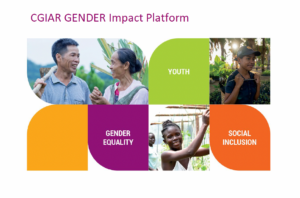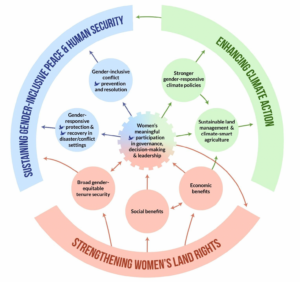Abstract
Rural women’s economic empowerment can be promoted in several ways in order to counteract climate change. The potential of rural women as agents of change for climate mitigation and adaptation remains untapped. Rural women’s extensive theoretical and practical knowledge of the environment and resource conservation is not given due consideration. In terms of economic participation, they are not paid for the environmental services that they already provide, for example, reforestation. In developing countries, for instance, women frequently play a major role in the reforestation and afforestation of cleared land and in forest conservation, yet they have hardly ever benefited from these environmental services. Enhancing the economic empowerment of rural women is a catalyst for development, which helps boost a country’s economic growth, promotes the socio-economic development not only of women, but of the entire population, and helps reduce poverty. This paper addresses the economic empowerment of rural women for climate change mitigation and adaptation. Economic empowerment of women involves having access to quality education, organising training programmes to sensitise the rural women on the use of drought–resistant crop varieties, pests and diseases resistant crop varieties,
crop diversification to guard against crop failure, use of energy-efficient cooking stoves, among others. The study recommends that measures to promote the economic participation of women can be integrated into climate mitigation and adaptation initiatives. In order for rural women to play an economic role in coping with challenges of climate change, appropriate measures should be put in place by the government at the national, state and local government levels by initiating economic empowerment programmes that will boost economic activities of rural women.




